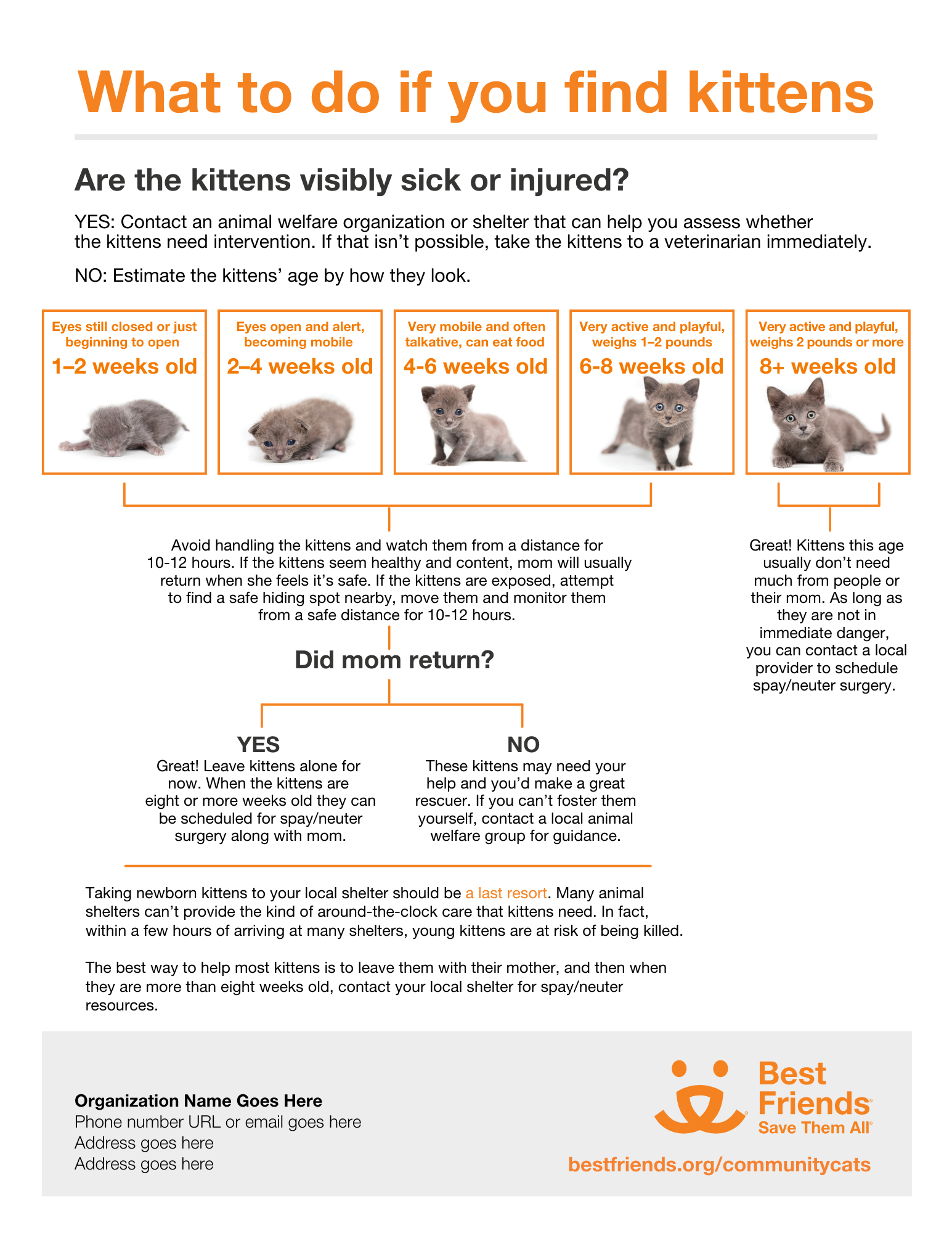
The Ultimate Guide to Caring for Baby Kittens
Introduction
Bringing a new baby kitten into your home is an exciting and rewarding experience. However, it also comes with a great deal of responsibility. Kittens are fragile creatures that require special care and attention to thrive. This comprehensive guide will provide you with all the essential information you need to ensure your furry little friend has a healthy and happy start in life.
Bringing Your Kitten Home
Before bringing your kitten home, prepare a safe and comfortable environment for them. This includes setting up a designated sleeping area, litter box, food and water bowls, and plenty of toys. It’s also important to kitten-proof your home by removing any potential hazards, such as electrical cords or poisonous plants.
Feeding
Kittens under eight weeks old should be fed every two to three hours. You can use a kitten-specific formula or goat’s milk. Follow the feeding instructions carefully and avoid overfeeding. As your kitten grows, gradually increase the feeding intervals and introduce solid food.
Weaning
Kittens typically start weaning around four to six weeks of age. Begin by mixing a small amount of kitten food with their formula or milk. Gradually increase the amount of solid food until your kitten is fully weaned by eight to ten weeks old.
Litter Box Training
Start litter box training your kitten as soon as possible. Place the litter box in a quiet, easily accessible location. Use a kitten-specific litter and show your kitten where it is. If they have an accident, gently redirect them to the litter box.
Grooming
Kittens require regular grooming to keep their fur clean and healthy. Brush their fur gently with a soft brush or comb several times a week. Trim their nails as needed and clean their ears regularly with a cotton ball dipped in warm water.
Health Care
Regular veterinary checkups are essential for your kitten’s health. Your veterinarian will perform a physical exam, administer vaccinations, and provide guidance on parasite prevention. Follow your veterinarian’s instructions carefully to ensure your kitten stays healthy.
Socialization
Socialization is crucial for kittens to develop into well-rounded and confident cats. Introduce your kitten to different people, places, and experiences from a young age. Play with them regularly and expose them to a variety of sounds and textures.
Common Health Issues
Kittens are susceptible to various health issues, including:
- Feline panleukopenia virus (FPV): A highly contagious and potentially fatal disease. Vaccination is essential.
- Feline calicivirus (FCV): Causes respiratory and oral infections. Vaccination is recommended.
- Feline herpesvirus (FHV-1): Causes respiratory and eye infections. Vaccination is recommended.
- Ringworm: A fungal infection that causes skin lesions. Treatment involves antifungal medication.
- Fleas and ticks: External parasites that can cause skin irritation and transmit diseases. Regular parasite prevention is essential.
Signs of Illness
If you notice any of the following signs of illness in your kitten, seek veterinary attention immediately:
- Lethargy or lack of appetite
- Vomiting or diarrhea
- Respiratory distress
- Eye or nasal discharge
- Skin lesions or hair loss
- Abnormal behavior
Special Considerations
- Orphaned kittens: If you find an orphaned kitten, contact a veterinarian or animal rescue organization immediately. They will provide specialized care and ensure the kitten’s survival.
- Pregnant kittens: Kittens as young as four months old can become pregnant. If you suspect your kitten is pregnant, seek veterinary attention promptly.
- Nursing kittens: Nursing kittens require a high-calorie diet to support their growth. Provide them with kitten-specific formula or milk and follow the feeding instructions carefully.
Conclusion
Caring for baby kittens is a rewarding but challenging experience. By following the guidelines outlined in this guide, you can provide your furry little friend with the best possible start in life. Remember to be patient, loving, and attentive, and your kitten will thrive under your care.
